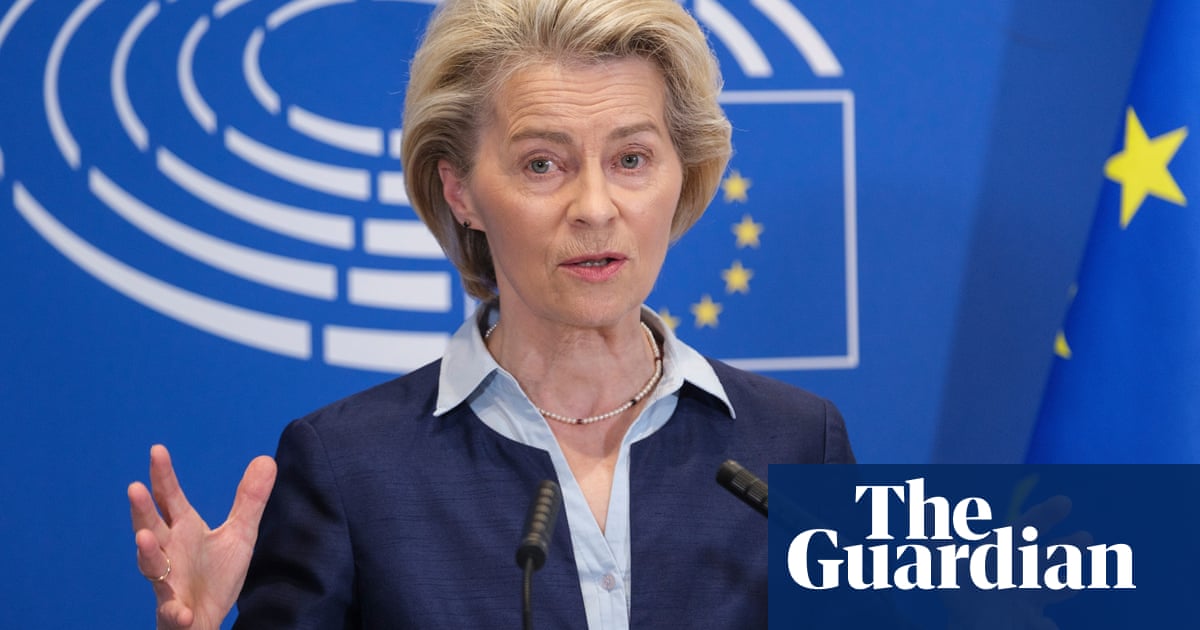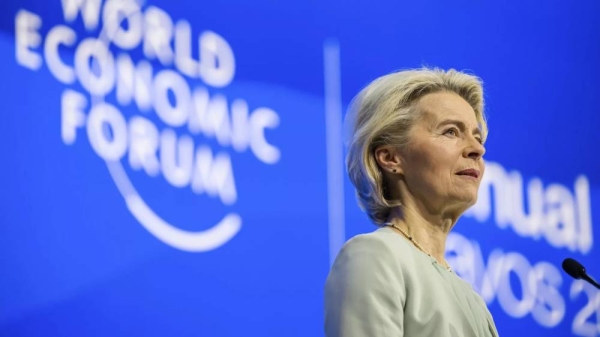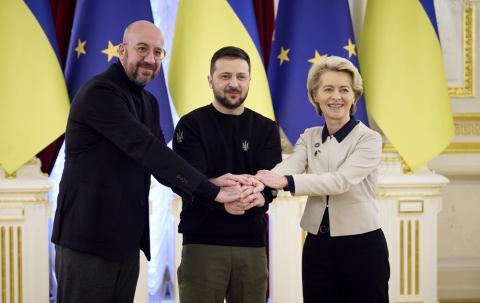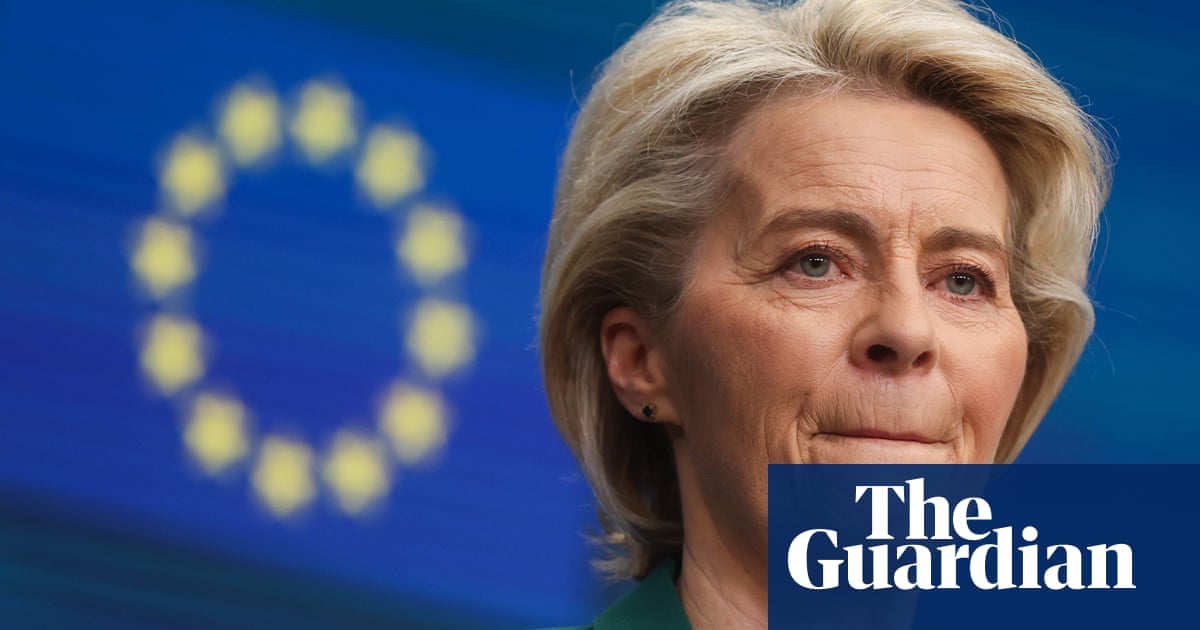
Ursula von der Leyen, the outgoing German minister of defense, was on Tuesday confirmed as the new president of the European Commission by a narrow margin. She secured 383 votes and needed 374. According to the Treaty of Lisbon, the European Parliament has the right to confirm or reject nominees.
Von der Leyen’s candidacy caused quite a stir to begin with. Originally, members of the European Parliament (MEPs) had demanded that they propose the lead candidate (“Spitzenkandidat”) via the major blocs. The concept was controversial, especially with French President Emmanuel Macron. It was he who suggested Von der Leyen after none of the two lead candidates could win the support of the heads of state.
MEPs were fuming. Worse, in Germany, the candidacy of Von der Leyen put the coalition government in danger. The Social Democrats were angry that their bloc’s Spitzenkandidat in the European Parliament did not make the race. They also criticized the defense minister’s track record. This led to the absurd situation that Chancellor Angela Merkel could not vote for Von der Leyen: The first time a German had stood for the office in more than 50 years and the first woman nominee for the post ever.
Von der Leyen scraped through the nomination process, just as she did through the election. She campaigned with verve and gusto. On Tuesday, the day of the vote, she made an impassioned speech. She spoke about her personal history growing up in Brussels and of her father. A child during the Second World War, he understood that the European Coal and Steel Community (the precursor to the EU) got Europeans trading again. He said that, “if Europeans did business together, they would forge friendships and friends did not go to war against each other.” Indeed, one of the biggest achievements of the EU is that Europe has remained peaceful since the last world war, through the Cold War and the fall of the Berlin Wall, which prompted dramatic changes in the countries of the former Eastern Bloc — many of which have since become EU member states.
As a candidate, Von der Leyen made many promises. She vowed to give Parliament a bigger voice, for instance allowing MEPs to table legislative initiatives. She also promised to make the concept of the Spitzenkandidat a reality. In a quest for the backing of the greens and center-left, she promised to focus on social and environmental policies, declaring that the EU would become more involved in social welfare policies and that she stood firmly behind the policies to ensure that the EU would generate net-zero carbon dioxide emissions by 2050. She advocated for humane refugee policies and said she would extend the Brexit deadline beyond Oct. 31, if it was for a good reason. Obviously, she also advocated a progressive gender policy. In other words, she proved that she is a politician through and through, making campaign promises designed to woo everyone.
Ursula von der Leyen proved that she is a politician through and through, making campaign promises designed to woo everyone.
Cornelia Meyer
What will this mean for her tenure as president of the European Commission? She will face an uphill battle. The moderate right voted for her, but the greens did not despite all of her promises. While the ballot was secret, arithmetic suggests that she could not have gained a majority without some votes from the far-right parties in Italy, Poland, Hungary and the Czech Republic. Where will that leave her when defending democracy or pleading for the rights of refugees as she promised? Where will it leave her when, for example, the EU needs to get tough on Italy because it is in breach of budgetary covenants?
A further obstacle is that the European Parliament has never been so fractious in the time since it first became directly elected by the people in 1979. It will be very difficult to get a majority among the eight factions (cross-country, cross-party groupings), which would be hard for anyone to navigate — let alone someone who does not have a solid majority behind her.
Brexit will be another issue. It has been all-consuming on the EU agenda for the last three years. Von der Leyen will take over the day after the UK is due to leave the EU. At this point, it is impossible to predict what will happen. Both candidates for the Tory party leadership and, with it the prime minister’s office, talk tough — especially with regard to the Northern Ireland backstop. Boris Johnson even brought up new elections as a possibility. EU heads of state have had it with Brexit, as have outgoing European Commission President Jean-Claude Juncker and European Council President Donald Tusk. Von der Leyen seems to sing from a different hymn sheet. The only thing we can be certain of is that the last chapter of the Brexit story has not yet been written. Brexit will test the mettle of the new president of the European Commission, irrespective of whether she will have to deal with protracted negotiations or the consequences of a no-deal Brexit.
Whatever one says about Juncker, he is a wily politician and very astute at managing the murky waters of Brussels. He is also a skilled negotiator. So much so that even Donald Trump is said to have called Brussels in admiration after meeting Juncker to discuss trade with Europe.
Von der Leyen will need to earn that respect within the European Parliament as well as with world leaders. It will not be an easy task and we should wish her well.












